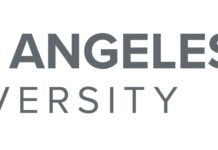PRINCETON, N.J., March 21, 2019 /PRNewswire-HISPANIC PR WIRE/ — Earning a bachelor’s degree has become a basic goal for high school students, but many college graduates with a four-year degree find themselves struggling to earn enough money to achieve their version of the American dream. In fact, a significant percentage earn no more than a high school graduate. How is that possible?
“Skills and the Earnings of College Graduates” shows that there is a significant number of four-year degree holders who failed to develop necessary skills in the critical areas of literacy and numeracy. As a result, they will likely find the higher income they were seeking by attending college and earning a degree to be a mirage.
These findings come in the context of expanding “college-for-all” policies in states across the nation. Yet this study, from Neeta Fogg, Paul Harrington and Ishwar Khatiwada of Drexel University’s Center for Labor Markets and Policy, suggests that the increasing emphasis on attaining a bachelor’s degree is fraught with risks that are partially mitigated by attaining commensurate levels of literacy and numeracy proficiencies. The authors found that employers value graduates with better literacy and numeracy skills and reward them with higher earnings — even after accounting for worker characteristics, major field of study and the type of occupation in which the worker is employed.
“Unfortunately, even as the numbers of college graduates have increased, many fail to acquire the minimum or college-graduate level of skills,” said Harrington, Director of Drexel’s Center for Labor Markets and Policy. “One out of every five adult non-elderly workers with a bachelor’s degree lacks minimum skills in literacy; for numeracy, the number is one in three. Employers seeking workers find that a four-year college diploma is not a guarantee of strong literacy or numeracy skills. And, individuals without these skills are at risk of losing the financial rewards of high earnings.”
“While there are other human-capital factors that affect future earnings, such as years of work experience and your college major, nothing is more important than having adequate literacy and numeracy skills,” Fogg said. “It’s of paramount importance that we focus more on giving young adults the skills they need to thrive in the labor market. Credentials without skills are quickly exposed in the American labor market.”
Irwin Kirsch, Director of the ETS Center for Research on Human Capital and Education, which commissioned the study, said the study dovetails with recent findings published in other Center policy reports. In “Too Big to Fail: Millennials on the Margins” (2018), it was found that nearly half of all Americans between ages 16 and 34 demonstrated low literacy skills, and more than half demonstrated low numeracy skills.
“These new findings should be an important signal to policymakers and leaders throughout the educational community that there is clear evidence indicating that significant numbers of high school and college graduates demonstrate insufficient levels of literacy and numeracy skills that are required for modern societies,” Kirsch said.
Key findings included the following:
- The study found that the gains to a bachelor’s degree while very substantial are well below the widely reported college graduate earnings premiums relative to high school graduates that do not account for the role of foundational skills in determining the earnings of workers.
- The average monthly earnings of graduates with a bachelor’s or higher college degree who were working in college-level occupations were double those of mal-employed college graduates ($7,200 per month versus $3,600). Mal-employed refers to college graduates working in non-college level jobs; that is, jobs that do not require the skills and knowledge typically attained from a college education.
- The average monthly earnings of college graduates with insufficient skills (below minimum) was $5,300, far less than the $7,300 for those with above minimum skill levels.
The authors’ findings are based on analysis of the Survey of Adult Skills of the Programme for the International Assessment of Adult Competencies (PIAAC), an international assessment measuring achievement for countries across the world. They used data for the United States from 2011–2014.
“Skills and the Earnings of College Graduates” is the second in a series on the impact of human capital in the American labor market. To download or read the complete report please visit: https://www.ets.org/research/report/earnings-college-graduates/.
About ETS
At ETS, we advance quality and equity in education for people worldwide by creating assessments based on rigorous research. ETS serves individuals, educational institutions and government agencies by providing customized solutions for teacher certification, English language learning, and elementary, secondary and postsecondary education, and by conducting education research, analysis and policy studies. Founded as a nonprofit in 1947, ETS develops, administers and scores more than 50 million tests annually — including the TOEFL® and TOEIC ® tests, the GRE ® tests and The Praxis Series ® assessments — in more than 180 countries, at over 9,000 locations worldwide. www.ets.org
SOURCE Educational Testing Service






